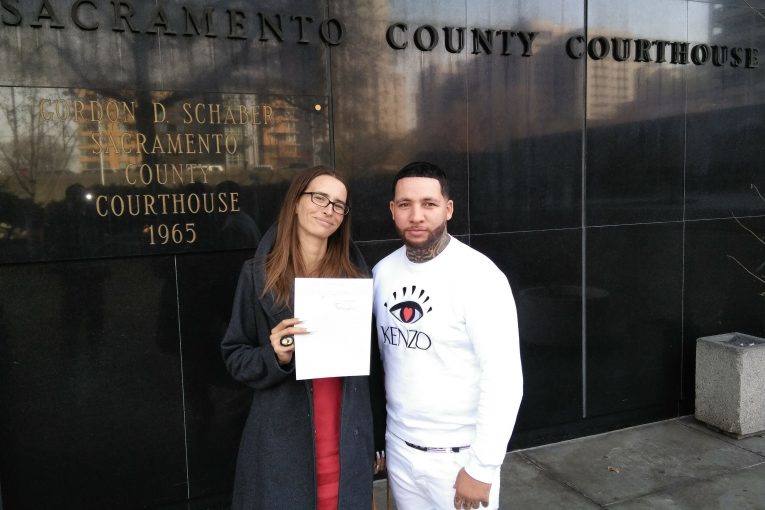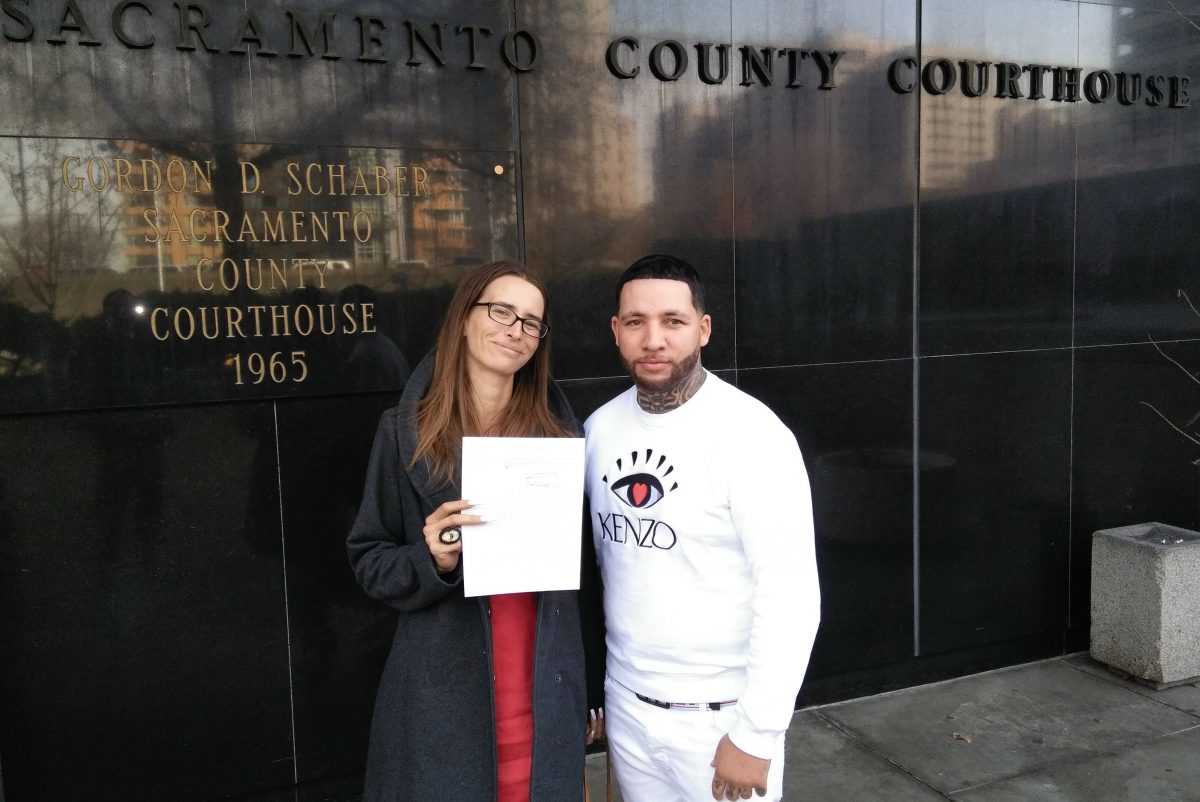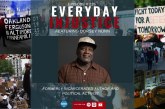

By Crescenzo Vellucci
Vanguard Sacramento Bureau
SACRAMENTO – A criminal case here in Sacramento County Superior Court was dismissed in the interest of justice late Friday, about a month after a judge ruled it must go forward despite questions by defense lawyers that Sacramento juries may racially discriminate.
Defense attorney Claire White in September boldly challenged the county jury selection process, charging her client, Jaedon Evans, and Preston Bouie – both Black and arrested for armed robbery at a Sacramento Denny’s restaurant last May – could not get a fair trial.
White’s unusual challenge – joined by fellow defense attorney Tom Clinkenbeard, Bouie’s lawyer – claimed Sacramento juries racially discriminate against African Americans, the poor and other segments of society.
Sacramento Superior Court Judge Curtis Fiorini granted White’s original challenge in early September, and generously gave her time to pursue the matter – delaying the trial by nearly four months.
The judge eventually denied the defense motion to quash the jury venire/pool because defendants could not prove the county jury is tainted with discrimination, and therefore couldn’t meet their burden – largely because it’s impossible to do so because no one collects the data.
However, late Friday, after months of delays, the Sacramento County District Attorney’s Office dismissed all charges. And the trial before a jury – racially biased or not – was never held.
The primary reason? The alleged victim wasn’t able to testify because he’s now dead – he died last month in a car accident. The DA dismissed and refiled charges hoping another witness would  testify, but Friday it became clear that would not happen.
testify, but Friday it became clear that would not happen.
“My client (Bouie) spent 18 months in county jail wrongly charged. But although it’s been 18 months of twist and turns, it’s over. I commend the innovative, creative strategies of Ms. White,” said Clinkenbeard.
“The DA did the right thing in the end. There is simply no evidence. My client (Evans) looks forward to getting on with his life. Our firm never gave up. We fight cases by any means necessary,” said White.
Speaking of her challenge to the jury system, White said the state legislature’s decision to not fund a study of how “biased” juries may be was wrongheaded, and unjust.
“We don’t have a fair jury system because we won’t spend the dollars to make sure it is constitutionally correct. People should be very, very concerned that our juries are not fair, just and constitutional,” she added.
In White’s pleadings she moved to “quash” the entire jury venire/pool because “the jury is not drawn from a representative cross-section of the relevant community in violation of the defendant’s federal and state constitutional rights.”
White challenged the county juror selection when only two of 60 jurors in her client’s case were Black. Both defendants in the case are Black.
She said, “the jury selection procedure in Sacramento County has resulted in selection of jurors in a constitutionally impermissible manner; that the jury excludes jurors of a protected class in violation of the defendant’s federal and state constitutional rights.”
But the judge denied her request to quash the jury venire, although recognizing in U.S. and California law the “defendant has constitutional…and statutory” rights to “challenge a jury panel” if the challenge satisfied a three-prong test “for a showing of a violation of the fair cross-section right.”
The defendants met the first requirement because they are part of a group “alleged to be excluded,” said the court, but added that they failed on the second and third prongs necessary, because, the judge ruled, “There is no evidence of underrepresentation of African-Americans in the jury pool,” and that “Any underrepresentation was not due to systematic exclusion of African-Americans.”
The judge said the “Defendant here has offered no evidence as to the number of African-Americans in the jury pool as compared to the community. Without such evidence, Defendant cannot meet his burden.”
In fact, as both White and the court noted, the jury commissioner is not required to collect information about the makeup of who is called for jury duty.
And without that information, which is not collected and not required to be collected, a defendant can’t prove a claim of underrepresentation of Blacks or any group, even if that bias existed.
“This Court is not unsympathetic to the burdens faced by defendants in challenging the venire. Even if a defendant has access to the data, questions remain as to the viability of the study, whether to rely on absolute or comparative disparity rates, and what constitutes a disparity of constitutional concerns,” said Fiorini.
In a detailed analysis provided the court, White said “it’s a mathematical fact that there is a disparity between the relative number of Black jurors in the venire and the relative population of Black people in the county.”
White maintained in her pleading that “statisticians in analyzing the limited data available to Mr. Evans, namely the presence of only 2 Black jurors out of 60 jurors” indicated that “if the venire is a fair cross section of the community, in this case a community with 10.9% Black population (as noted in the 2010 Sacramento County census), drawing only 2 Black jurors in a group of 60, would only happen 0.000027% of the time.”
White concluded that “In other words, if there were 1000 jury trials in Sacramento county per year, we should only get a panel of 60 potential jurors with 2 potential Black jurors once every 3,600 years. Essentially, it’s a mathematical fact that there is a disparity between the relative number of Black jurors in the venire (jury pool) and the relative population of Black people in the county.”
The Oakland-based attorney added that the “system used inevitably and definitively results in a disparity in the number of Black jurors relative to the Black population of the county,” and that “the venire cannot be a fair cross section of the community. This disparity, or under representations of African-Americans citizens on the jury venires in Sacramento County is not fair or reasonable in relation to the numbers of such persons in the community.”
Judge Fiorini did note, in ruling against White’s motion, that the state legislature had an opportunity, in 2017 legislation, to remedy the situation by passing a bill mandating the collection of statistical data on jurors, but failed to act on the measure.
“This Court declines to order what the Legislature has failed to enact. To order any agent of the government to collect such data would be to engage in impermissible judicial legislation,” he said.
But White charged that “the Sacramento County Superior Court’s jury selection process as currently implemented results in a significant under representation of African Americans.”
“The resulting disproportionate number of African Americans on defendant’s jury not only violates defendant’s constitutional right to a representative cross-section of our community on this jury but it also injures the entire community and reflects poorly on the judicial process throughout the county,” White said.
White argued that it was a “mathematical certainty that juries are not a cross section of the community, calling their makeup “unjust and perverted…out of balance.” In addition to race bias, White suggested juries are probably not fair regarding the inclusion of gender, class, wealth and other cross sections of the community
“This court sits in a different time and place than previous courts. This court can kick (the issue) down the road but the court has the power to require production of data necessary for a fair jury system going forward,” White said, imploring Fiorini to what would be making law. He did not do so.
White’s argument failed, but she did quote former U.S. Supreme Court Justice Thurgood Marshall, who said:
“When any large and identifiable segment of the community is excluded from jury service, the effect is to remove from the jury room qualities of human nature and varieties of human experience, the range of which is unknown and perhaps unknowable. It is not necessary to assume that the excluded group will consistently vote as a class in order to conclude, as we do, that their exclusion deprives the jury of a perspective on human events that may have unsuspected importance in any case that may be presented.”
When White posed the challenge concerning the county jury pool initially, veteran defense lawyers said they couldn’t recall such a request – let alone one that was granted. One attorney said “it’s about time” the jury selection process in Sacramento was examined.
White – a University of California, Davis law school alum – has a history in Sacramento of pulling of legal miracles. In her first jury trial several years ago, and despite her client admitted his guilty, she convinced a jury to not convict a former homeless veteran after he hit Sacramento Mayor Kevin Johnson with a pie as political theatre.
This time, her unique challenge of the jury selection system delayed a trial for months – long enough for the DA to lose its key witness in death, thus leading to dismissed charges for her client.






”
White – a University of California, Davis law school alum – has a history in Sacramento of pulling of legal miracles. …
This time, her unique challenge of the jury selection system delayed a trial for months – long enough for the DA to lose its key witness in death, thus leading to dismissed charges for her client.”
Wow, miraculous indeed. I guess Mayor Johnson should be glad she didn’t have to go that far to put confessed assailant Sean Thompson back on the street.
Not sure of your point here. She shouldn’t have represented her client?
There is a difference between representing, and “gaming the system”, particularly if she knew/suspected, that the witness would not be available to testify, except maybe by ouija board, if she got the delay…. the merits of her arguments were not sustained (according to the article)….
Yeah, but the Thompson case was much less than “armed robbery”… by magnitudes… easy lift…
“Yeah, but the Thompson case was much less than “armed robbery”… by magnitudes…”
I doubt Mayor Johnson would agree.
“Assault”… maybe to an egotistical wimp… “Armed”… really?… “robbery” generally means money or goods were taken… ‘pride/ego’ fits neither of those… very different magnitudes, unless, of course, one is a narcissist…
I would submit that Mr Thompson was the egotistical “wimp” acting to make a political statement,(so he claimed, )by ambushing his victim and then crying about the mayors self-defense.
John… am thinking both are egotistical wimps… but one had ‘bodyguards’… who arguably committed assault, but not charged… the ‘self-defense on behalf of another’ thing was the excuse… ‘defense’ in NYC… if you have an Italian/Sicilian name…
Still, a world away from ‘armed robbery’…
Thompson/Johnson… no ‘heroes’ there, as to the pie incident… two asses do not mean a noble horse…
Sounds like we should agree to disagree…
“Not seeing any “special law” for public officials (or their bodyguards), regarding their response to incidents.”
You aren’t a very good researcher.